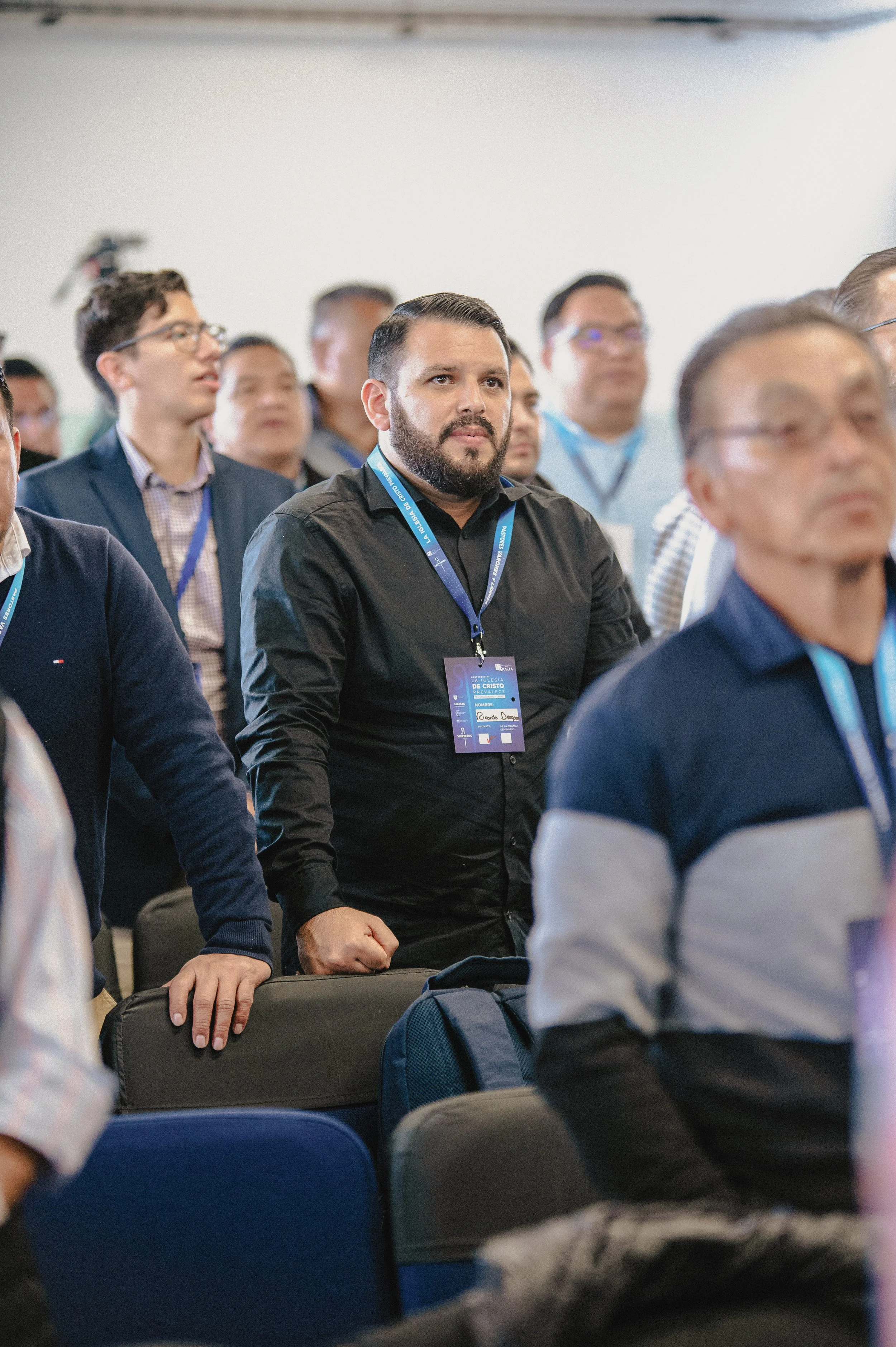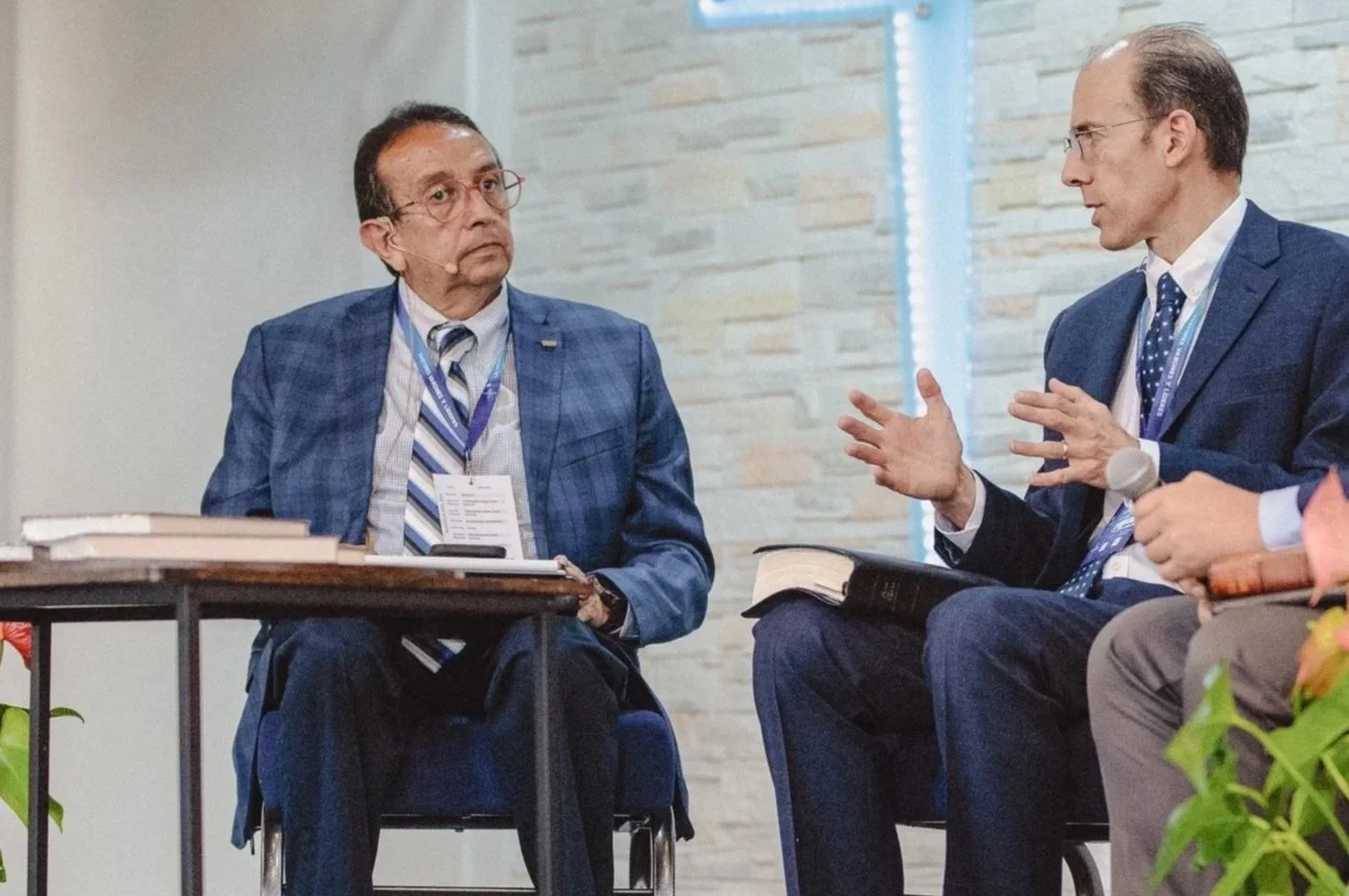Mexico
Word of Grace Biblical Seminary
MEMBER SCHOOL
Number of Graduates: 1349 | Churches Impacted: 85
We prepare men to display God's glory through expository preaching.
MISSION
KEY DETAILS ON WORD OF GRACE BIBLICAL SEMINARY
About
-
We exist to train pastors, teachers, preachers and leaders in sound doctrine, with a strong theological foundation, to preach the Bible centered in Christ, not men.
-
Train pastors, preachers, and leaders to preach expositorily
Emphasize Christ's and His Word's centrality in all church ministries
Prepare Bible teachers for an effective ministry in their churches
Give church leaders the tools to guide the congregation where the Lord has them serving
Teach men to be the next generation of teachers
-
We use several modalities for our three programs: modular, on site, Zoom, online and intensive. In all programs the courses are supported by Canvas for the delivery of syllabus and other class materials to the students, and assignments from the students.
Training
-
Currently we offer three programs:
The students start with the Bible and Theology Diploma (BTD) (two years, men and women). It is addressed to all church teachers. It may be:
Regular model: Meeting three hours, twice a week, during eight weeks per quarter
Zoom model: Similar to the former, but the meetings are done through Zoom
Saturday model: Meeting six hours per Saturday, during eight weeks per quarter
Fully online model: Each module lasts eight weeks, the student has to comply with weekly due dates, but during each week the student may follow his own schedule to see the prerecorded class videos. A mentor is assigned to interact with students, solve doubts, and grade assignments.
Intensive model: Meeting one week per quarter. Students should finish their assignments before the next module. Our teachers are sent to different locations (extensions) far away from Mexico City.
Those men who graduate from BTD may continue with Expository Preaching Certificate (EPC) (two years). It is addressed more specifically to pastors, preachers and church leaders. May be the same modalities than BTD.
Those students graduated from EPC may continue with Biblical Languages Certificate (BLC), in order to refine their skills through the understanding of biblical Greek and Hebrew. Due to the complexity of the subjects taught, it is offered only using the Zoom model in order to be able to interact twice a week with the students at the same time that we serve those graduated from all the previous modalities of EPC, including foreign locations. Modules last nine weeks, instead of eight.
We are excited to start the new Certificate in Biblical Ministry, in regular, Zoom, and Saturday models, which is intended to provide the basis for those students who desire to pursue the Master of Biblical Ministry at TMS.
-
WGBS started in 1998, when the need of training in several sister churches was met by the desire of GCC to develop an international ministry of church leaders training. At first, professors from TMS were sent to teach in Mexico City in intensive one-week modules. Later, several missionaries were sent to teach in a regular weekly basis. After we had our first graduations, little by little, several alumni have been sent to TMS in order to receive more training and become indigenous teachers that continue preparing the next generations of pastors and preachers. Currently, WGBS has around 1500 graduates from several Baptist, Pentecostal, Charismatic and non-denominational churches.
-
We aim to establish more permanent extensions at Guadalajara and Monterrey as our main hubs to extend our ministry to other regions of the country that are in urgent need of trained pastors and preachers who can lead strong churches rooted in the Bible and not in human (lack of) wisdom.
We also would like to obtain Mexico's government accreditation so that young people may see WGBS as the best option for a career election, instead of spending several years pursuing a secular training.
Context
-
Population: 130,739,927 (2024 est.)
Ethnic Groups: Mestizo (Indigenous-Spanish) 62%, predominantly Indigenous 21%, Indigenous 7%, other 10% (mostly European) (2012 est.)
Note: Mexico does not collect census data on ethnicity.
Languages: Spanish only 93.8%, Spanish and indigenous languages (including Mayan, Nahuatl, and others) 5.4%, indigenous only 0.6%, unspecified 0.2% (2020 est.)
Religions: Roman Catholic 78%, Protestant/evangelical Christian 11.2%, other 0.002%, unaffiliated (includes atheism) 10.6% (2020 est.)
Refugees and Internally Displaced Persons
Refugees (Country of Origin): 35,755 (Honduras), 13,531 (El Salvador) (mid-year 2022); 113,108 (Venezuela) (economic and political crisis; includes Venezuelans who have claimed asylum, are recognized as refugees, or have received alternative legal stay) (2023)
Internally Displaced Persons: 386,000 (government's quashing of Zapatista uprising in 1994 in eastern Chiapas Region; drug cartel violence and government's military response since 2007; violence between and within indigenous groups) (2022)
Stateless Persons: 13 (2022)
Stats from CIA.gov
-
Before Spain’s colonization of the New World during the 16th century, Mexico was home to several advanced Amerindian civilizations—including the Olmec, Toltec, Teotihuacan, Zapotec, Maya, and Aztec. From the 16th to the 19th centuries, it was administered as the Viceroyalty of New Spain. In 1846, conflict between the U.S. and Mexican governments over the Texas border led to the Mexican-American war (1846-1848). Mexico ultimately ceded 500,000 square miles of territory to the U.S. While Mexican Independence was achieved in the early 19th century, it took nearly 90 years before the government party (the Institutional Revolutionary Party or PRI) would be defeated in a free election. That occurred in 2000, when Vicente Fox of the National Action Party (PAN) won the election against the PRI.
Mexican trade relations have undergone significant changes within the last decade. The North American Free Trade Agreement (NAFTA) was replaced in 2020 by the US-Mexico-Canada Agreement (USMCA);. Mexico is currently the U.S. second-largest goods trading partner (after Canada). Continuing economic and social concerns in Mexico include low wages, high unemployment, and inequitable income distribution. Mexico’s largely indigenous southern states are particularly impoverished. Organized crime tied to a prolific drug trade likewise presents an ongoing challenge for the Mexican government. Roman Catholicism has a deeply rooted heritage in the nation, but the numbers of evangelicals are growing.
Compiled from CIA.gov, Operation World, Joshua Project, and Encyclopedia Britannica
HOW TO PARTNER










